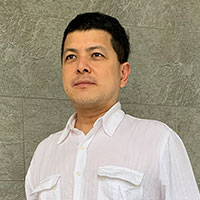KOTA KINABALU: Many countries and regions around the world have a sort of love-hate relationship with "hot" money. On the one hand, they love precisely the intensity of its "heat." No matter how "hot" the money is, at the end of the day it is still money, and sometimes even cold, hard cash, and as such it presents an intoxicating, even addictive attraction for many. This is especially so for many developing countries, some of which actually possess abundant natural resources. In principle they could simply extract or plant and harvest these resources and process or even just export them raw to prosper. But the naturally endowed bounties would still require a lot of capital funding to be extracted, planted, harvested, processed and exported. Even to pluck the proverbial low-hanging fruits or to pick up those strewn around would still require plenty of capital for hiring manual labor or mechanizing. Without money even the most readily available resources could only be envied, as they rot or are wasted.
As such, under most fortuitous circumstances, many developing countries would have to earnestly welcome money "hot" and cold, sometimes even having to compete fiercely with one another, in order to get their hands at the much sought after funding for development. And undoubtedly there are often elements of corruption and fraud in the money transfer process. Many developing countries are in actuality firmly controlled by the ruling elite, both politically and economically. Democracy in its genuine sense is at best sometimes present in these often impoverished countries, but more often than not it is absent or fake. "Hot" money that originates from developed nations would often pass through the hands of these local elites in the name of "cooperation" or "joint venture," and the latter party would often not hesitate to help themselves to these slush funds. After all, they could almost always be repaid with public monies, some more with hefty interest to the original funders. At most the public is saddled with the crushing debt, while the elites have made their lion's share of "profits." In recent years, some of these internationally infamous kleptocratic cases have been revealed, but the perpetrators have either disappeared with their riches, or even attempted to make conspicuous comebacks. Ironically, some members of the public who were unknowing victims of such egregious kleptocracy would actually vociferously root for such comebacks, often only rewarded by disproportionately small but admittedly much needed crumbs. It presents a noisy but sad scene for these developing countries.
Continue reading with one of these options:
Ad-free access
P 80 per month
(billed annually at P 960)
- Unlimited ad-free access to website articles
- Limited offer: Subscribe today and get digital edition access for free (accessible with up to 3 devices)


